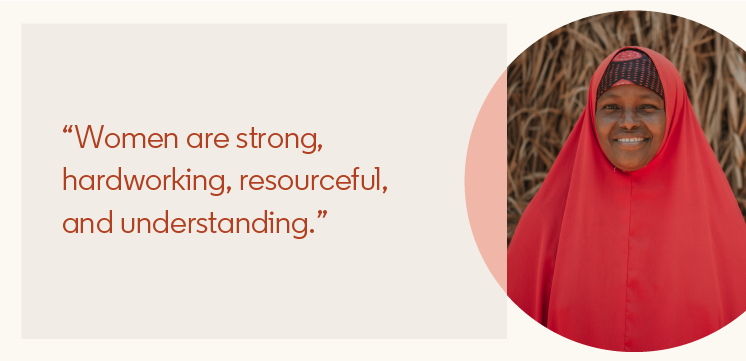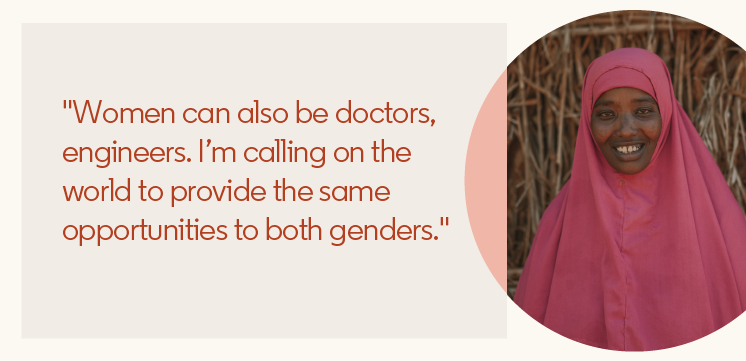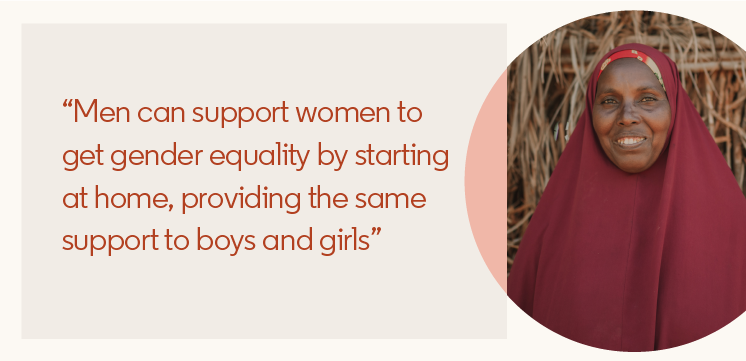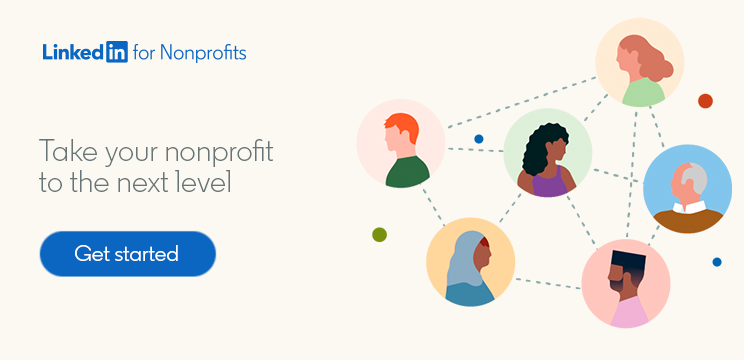
Nonprofit Heroes: 3 Inspirational Women Changing the Face of Leadership
At LinkedIn for Nonprofits, we want to celebrate and uplift nonprofit heroes making a difference every day. This month, we partnered with the International Rescue Committee (IRC), an organization that helps people facing humanitarian crises to rebuild their lives, to speak to three Somali women living in a refugee camp in Ethiopia. These women have persevered through unimaginable hardship and, as part of the Women’s Steering Committee, do incredible work to support women and girls in their community and raise awareness about their rights.
We are honored to feature them as our very first Nonprofit Heroes and to share their stories with you, as well as their insights about leadership, equality, and the role men can play in uplifting women.
Halima Hashi: Creating safe spaces for women

At 37, Halima Hashi has suffered more heartache than many of us will experience in a lifetime. After her family was attacked, she and her husband fled to Ethiopia with their newborn child, who at the time was only 10 days old. The journey took five days, three of which were spent on foot, and Halima fell ill shortly after arriving at the refugee camp. She recovered, but she still doesn’t know where her brother-in-law is.
Since joining the Women’s Steering Committee, Halima has worked tirelessly to help create a safe space for women. This includes raising awareness about the services available to them, conducting house visits to identify vulnerable women, and conducting safety audits in the camp.
She has also helped countless women find justice after experiencing acts of unspeakable cruelty. In one instance, a mother called the Women’s Steering Committee after being unable to find her nine-year-old daughter. Halima found the girl at a farm, unconscious. She had been raped by a neighbor.
“When she recovered, we were able to identify the man,” Halima says. “He was arrested and will spend nine years in jail. The highlights of my career are being able to support women, refer the women that need help to the IRC, and see them get justice and support. Especially the nine-year-old girl.”
Halima has faced pushback for her work in the community and often finds it difficult to do home visits when men are present. She says that men have accused the Women’s Steering Committee of “causing problems” and wanting to “break the family and put ideas in the women’s head.” But the women welcome their presence, and Halima knows how important it is for women to have someone advocating for them.
“If a woman is a leader they can support women and tackle the problems other women are facing,” she says. “Women are strong, hardworking, resourceful, and understanding.”
Zainab Bare: Advocating for equality

Zainab Bare’s story is difficult to read. After being attacked while pregnant and seeing her brother-in-law killed, Zainab fled Mogadishu (Somalia’s capital) in secret with her husband and three children, leaving all their belongings behind. When she first arrived at the refugee camp in Ethiopia, she was initially too traumatized to tell anyone what had happened to her.
“My happiest day was when I arrived safely in Ethiopia,” Zainab says. “Within two months, I felt safe and I felt peace. I felt there was equality in the camp.”
A passionate advocate for equality, Zainab calls on the world to provide equal opportunities to men and women, including access to education. She also believes that men should uplift women on their path to leadership, encouraging them to pursue their dreams.
“Men should be saying, ‘Whatever I can do, you can do,’” Zainab says. “Men can also influence the perception of the community to help them understand that women can do anything. Women can be doctors and engineers… all their goals.”
Fatima Abdi: Empowering women to reach their goals

When Fatima Abdi was forced to leave her home in Mogadishu as a result of violent conflict and devastating drought, she faced a difficult journey to the refugee camp.
“We lost all our animals because of the drought,” Fatima explains. “We were forced to move by foot. It took 12 days.”
Shortly after arriving at the camp, Fatima heard about the Women’s Steering Committee. With training and resources from IRC, she now works to empower adolescent girls, helping them get an education and achieve their goals. Previously, she says, her community prioritized the education of boys. Now, she’s working to level the playing field.
“Men can support women to get gender equality by starting at home, providing the same support to boys and girls,” Fatima says. “They [also] need to be accountable for working with other men to tackle the violence against women and girls.”
In Fatima’s eyes, the true qualities of a good leader are patience, honesty, and reliability. She wants the women around her to understand that they can be the leaders of tomorrow because they are powerful and resourceful like she is.
“Women can do whatever men can do,” Fatima adds. “They can empower other women and girls and empower the whole community.”
Empowering women leaders in nonprofit sectors
Fatima, Zainab, and Halima’s stories highlight the value of having leaders from a wide range of backgrounds. Women bring a different perspective and, often, a different approach to leadership—one that is grounded in empathy, balancing resilience with understanding.
These women are true heroes. They are also living proof that wherever you are in the world and whatever your story, you can uplift and empower others in your community. It only takes one person to make a difference in someone’s life—whether you’re leading a nonprofit or offering to mentor and advocate for a woman at your organization.
Photos: Martha Tadesse/IRC

